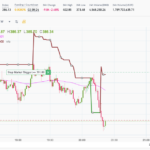The Impact of AI on Scientific Creativity
With the rise of artificial intelligence (AI) in various fields, including scientific research, there is a growing concern that reliance on AI tools could potentially hinder the creative abilities of scientists. While AI has undoubtedly revolutionized the way research is conducted and has accelerated the pace of discovery, there are valid arguments suggesting that it might be stifling the creative thinking that is essential for breakthrough innovations in science.
AI and Data Analysis
One of the primary ways in which AI is transforming scientific research is through its ability to process and analyze vast amounts of data at speeds far beyond human capacity. AI algorithms can identify patterns, correlations, and anomalies in data sets much more efficiently than humans can, leading to quicker insights and discoveries. While this is undeniably beneficial for advancing scientific knowledge, some argue that the reliance on AI for data analysis may be limiting scientists’ ability to think outside the box and come up with unconventional hypotheses.
Automation and Repetitive Tasks
Another aspect of AI that is changing the landscape of scientific research is automation. AI-powered tools can automate repetitive tasks such as literature reviews, data collection, and experimental design, freeing up scientists to focus on more complex and creative aspects of their work. However, the downside of this automation is that scientists may become too reliant on AI for these tasks, potentially diminishing their problem-solving skills and innovative thinking.
Confirmation Bias and Lack of Serendipity
AI algorithms are designed to optimize for specific outcomes based on the data they are trained on. While this is useful for making predictions and recommendations, it can also lead to confirmation bias, where scientists are only presented with information that aligns with preconceived notions or existing theories. This lack of exposure to diverse perspectives and unexpected findings could stifle creativity and hinder the exploration of new research directions that may not fit neatly into the existing data patterns.
Loss of Intuition and Gut Feeling
Creativity in science often stems from intuition, gut feelings, and the ability to make intuitive leaps based on partial information or hunches. AI, being driven by algorithms and data-driven logic, may not possess the same intuitive capabilities as humans. As scientists rely more on AI-generated insights and recommendations, they may lose touch with their own intuition and creative instincts, potentially limiting their ability to make groundbreaking discoveries that require unconventional thinking.
Combating the Creativity Crisis
While the concerns about AI potentially making scientists less creative are valid, there are strategies that can be implemented to mitigate these effects and foster a more creative research environment. Encouraging interdisciplinary collaborations, promoting diversity of thought, and incorporating human oversight in AI-driven processes are ways to ensure that scientific creativity is not stifled by AI but rather enhanced by it.
In conclusion, while AI undoubtedly offers numerous benefits in scientific research, there is a legitimate concern that it could be making scientists less creative by automating tasks, reinforcing biases, and diminishing the role of intuition in the research process. By being mindful of these potential pitfalls and actively working to maintain a balance between AI-driven efficiency and human creativity, scientists can continue to harness the power of AI while nurturing their own innovative thinking to push the boundaries of scientific knowledge.






